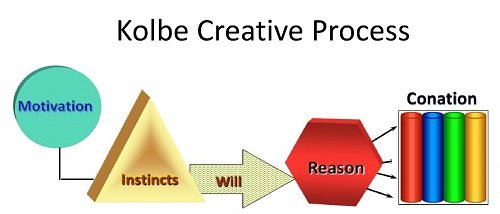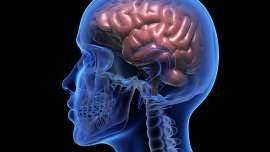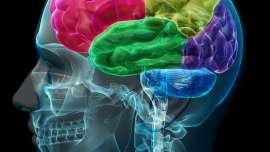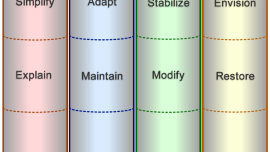Kolbe Wisdom™
Kolbe sees every person as uniquely and perfectly capable of creative problem solving.
The Kolbe Concept® holds that creative instincts are the source of mental energy that drives people to take specific actions. This mental drive is separate and distinct from passive feeling and thoughts. Creative instincts are manifested in an innate pattern that determines an individual’s unique method of operation, or modus operandi (M.O.).

A person’s M.O. is quantifiable and observable yet functions at the subconscious level. It governs actions, reactions and interactions. It also determines the person’s use of time and natural form of communication. Understanding and exercising control over this mental resource gives people the freedom to be their authentic selves.
When people act according to instinct, their energy is almost inexhaustible – like water running downhill. But when people are forced to act against their instinct, their energy is rapidly depleted – like water being pumped uphill.
Individual performance can be predicted with great accuracy by comparing a person’s M.O. with self-expectations and the requirements of specific tasks. Performance fluctuates based on how closely these elements align.
M.O.s vary across the general population and show no gender, age or racial bias. When groups of people with the right mix of M.O.s function interactively, the combined mental energy produces synergy. Teams organized along these lines can perform at a higher level than is possible for the same group of people functioning independently. Team performance is accurately predicted by Kolbe’s proprietary algorithms which determine the appropriate balance and makeup of M.O.s.
The Kolbe Concept is backed by substantial scientific research and validation and is examined in numerous research articles. Additional scholarship has focused on the historical and theoretical basis that underlies the Kolbe Concept.

What is Conation?
 Action derived from instinct; purposeful mode of striving, volition. It is a conscious effort to carry out self-determined acts.
Action derived from instinct; purposeful mode of striving, volition. It is a conscious effort to carry out self-determined acts.
The Latin ‘conatus‘, from which conation is derived, is defined as “any natural tendency, impulse, or directed effort.”
Three Parts of the Mind
 Ancient philosophers and modern psychologists share the concept of a three-part mind with separate domains for thinking, feeling, and doing. The conative, or doing, part contains the striving instincts that drive a person’s natural way of taking action, or modus operandi (M.O.).
Ancient philosophers and modern psychologists share the concept of a three-part mind with separate domains for thinking, feeling, and doing. The conative, or doing, part contains the striving instincts that drive a person’s natural way of taking action, or modus operandi (M.O.).
Four Action Modes®
 Kathy Kolbe was the first to identify four universal human instincts used in creative problem solving. These instincts are not measurable. However, the observable acts derived from them can be identified and quantified by the Kolbe A™ Index.
Kathy Kolbe was the first to identify four universal human instincts used in creative problem solving. These instincts are not measurable. However, the observable acts derived from them can be identified and quantified by the Kolbe A™ Index.
Twelve Ways to Solve Problems
 The combination of the four Action Modes describes twelve unique methods of problem solving, or Kolbe Strengths™. Each of us will use four of these approaches, one in each Action Mode, when we tackle challenges in the way we are most naturally comfortable.
The combination of the four Action Modes describes twelve unique methods of problem solving, or Kolbe Strengths™. Each of us will use four of these approaches, one in each Action Mode, when we tackle challenges in the way we are most naturally comfortable.
Trademarks and registered trademarks are the property of Kathy Kolbe and Kolbe Corp. All rights reserved. Used herein with permission.